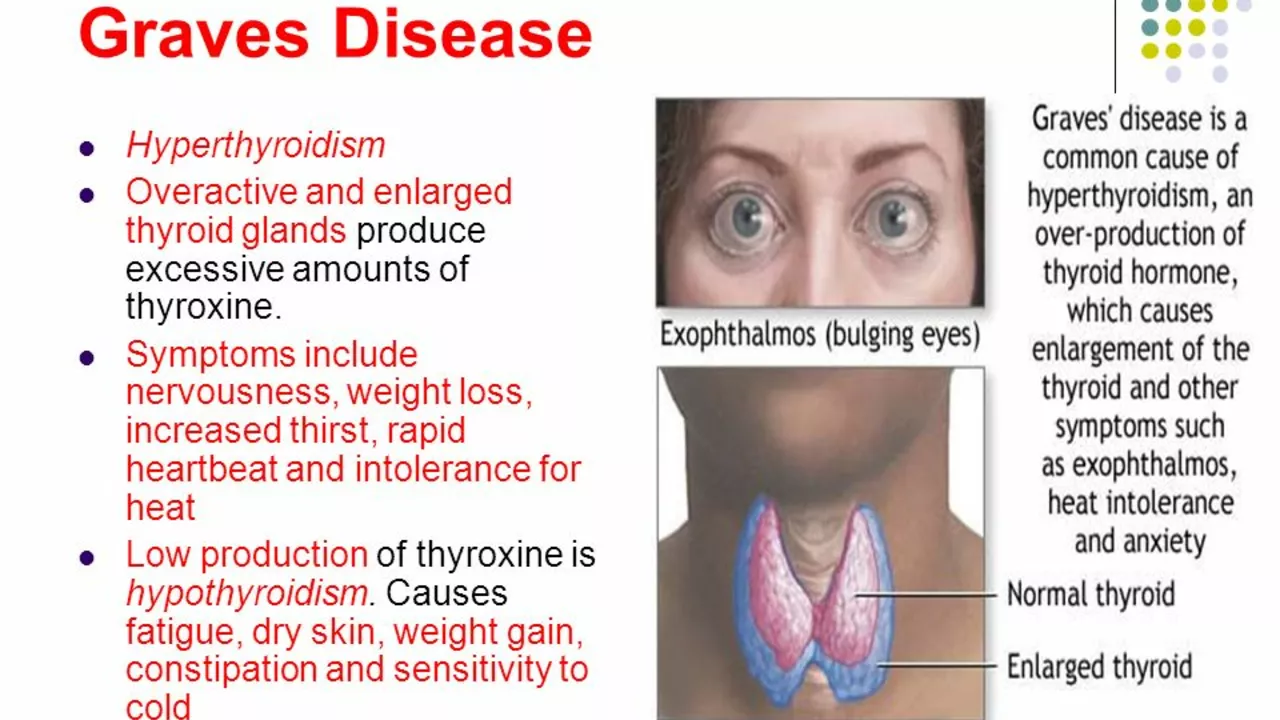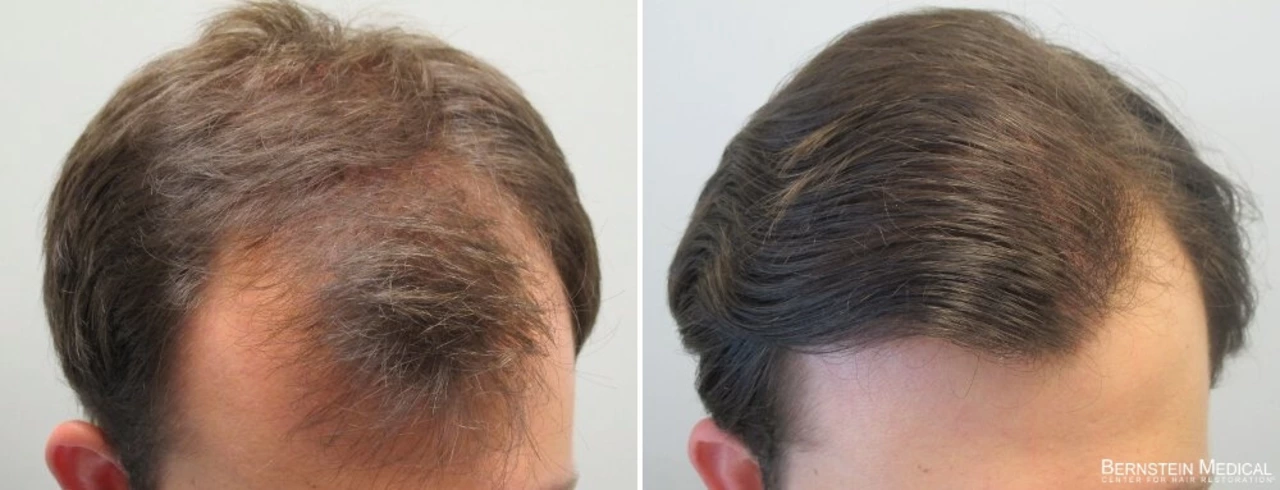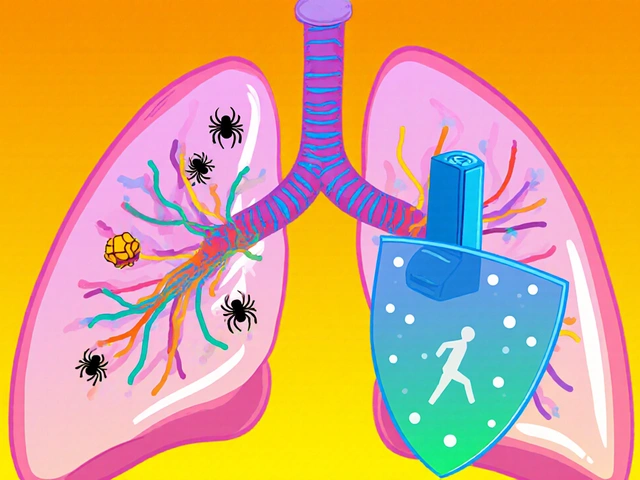Drug Interactions: Same Risk for Generic and Brand Medications
January 30 2026June 2023 Archive — Practical Health & Medication Notes
June brought six short, useful posts aimed at people who want clear, practical health info without the jargon. You’ll find actionable tips on spotting thyroid problems in men, staying on top of cancer follow-up, treating nighttime urination, managing pregnancy sneezes, separating fact from fiction about an antidepressant, and how a hair-loss combo actually works.
The piece on hyperthyroidism in men focuses on what to watch for and how doctors confirm the diagnosis. Key signs: unexplained weight loss, fast heartbeat, nervousness, tremors and sweating. The post explains the usual tests — thyroid hormone bloodwork and, when needed, imaging — and the main treatment paths: anti-thyroid meds, radioactive iodine, or surgery. If symptoms feel sudden or severe, the post suggests seeing a clinician rather than guessing at home.
One post cuts straight to why regular follow-up matters for people with advanced renal cell carcinoma. Rather than vague warnings, it lists practical benefits: catching progression early, managing side effects before they worsen, and adjusting treatment quickly. The tone is patient-first — keep your appointment schedule, bring a list of symptoms, and ask about imaging timing and supportive care options. The post treats follow-up as active care, not optional paperwork.
Tolterodine for nocturia gets a focused look: can an overactive bladder drug reduce waking at night? The summary reports that tolterodine has shown benefit for some people by calming bladder contractions and cutting nighttime trips. It also reminds readers about side effects like dry mouth and constipation, and stresses checking heart and urinary issues with a doctor before starting the drug. The message: promising, but talk it over with your prescriber.
Pregnancy sneezing and safe fixes
The pregnancy sneezing article explains why expectant mothers may sneeze more — hormones and nasal swelling — and gives simple, safe remedies: saline sprays, humidifiers, hydration, and avoiding strong irritants. It explicitly says sneezing won’t harm the baby, but if congestion is severe or tied to other symptoms (fever, nosebleed), see your provider. That kind of plain reassurance helps reduce worry without minimizing real issues.
Myths, meds, and hair science
The vilazodone myth-busting post picks three common worries apart: weight gain, sexual side effects, and addiction. It points to data showing minimal weight change, relatively low sexual side-effect risk compared with some SSRIs, and no evidence of addiction — while still advising medical guidance for any antidepressant choice. The hair-loss article explains how combining minoxidil and finasteride attacks two causes at once: minoxidil boosts blood flow to follicles, finasteride lowers DHT. Together they often work better than either alone, but the post notes timing and consistent use matter.
Want quick next steps? If a topic hits home, read the full post, note questions for your clinician, and keep a simple symptom log before appointments. These June posts are short, specific, and meant to get you asking the right questions — not replace a doctor. Browse the full articles for details and links to clinical sources if you want deeper reading.
 28 Jun
28 Jun
Hyperthyroidism in Men: Symptoms, Diagnosis, and Treatment
In my latest post, I delved into the topic of hyperthyroidism in men, exploring symptoms, diagnosis, and treatment options. I learned that common symptoms range from unexplained weight loss, increased heart rate, nervousness, to excessive sweating. For diagnosis, doctors usually rely on physical exams, blood tests, and sometimes, imaging studies. The good news is, hyperthyroidism is treatable, with options including anti-thyroid medications, radioactive iodine, and surgery. It's vital for men to be aware of this condition, as early detection can make a significant difference in their treatment and recovery.
Read More... 26 Jun
26 Jun
The Importance of Regular Follow-Up Care for Advanced Renal Cell Carcinoma Patients
As a patient dealing with advanced renal cell carcinoma, I cannot stress enough the importance of regular follow-up care. Staying vigilant with our appointments helps us monitor the progress of the disease, manage side effects, and ensure that the treatment plan remains effective. Our healthcare team is our partner in this journey, providing valuable insights and support. By prioritizing follow-up care, we can make informed decisions about our health and improve our overall quality of life. Let's not take any chances and commit to taking charge of our well-being.
Read More... 18 Jun
18 Jun
Can Tolterodine Help with Nocturia (Nighttime Urination)?
As a blogger, I recently came across the topic of nocturia, or nighttime urination, and wondered if Tolterodine could help with this issue. After doing some research, I found out that Tolterodine, a medication typically used to treat overactive bladder, has shown promise in reducing the frequency of nighttime urination. Studies have indicated that this drug may help improve sleep quality and overall quality of life for those suffering from nocturia. However, it's essential to consult with your doctor before starting any new medication. In conclusion, Tolterodine appears to be a promising option for those struggling with nocturia, but it's crucial to discuss it with a healthcare professional first.
Read More...Sneezing and pregnancy: what expectant mothers need to know
During pregnancy, expectant mothers may experience increased sneezing due to hormonal changes and congestion. It's important to know that sneezing itself won't harm the baby, but it can cause discomfort for the mother. To alleviate sneezing, pregnant women can try using a humidifier, saline nasal spray, or staying hydrated. It's also essential to avoid potential allergens and irritants, such as smoke and strong odors. Lastly, always consult with your healthcare provider for personalized advice and recommendations on how to manage sneezing during pregnancy.
Read More... 3 Jun
3 Jun
Debunking Common Myths About Vilazodone
In today's post, I'm going to debunk some common myths surrounding Vilazodone, an antidepressant medication. Many people believe that Vilazodone causes significant weight gain, but in reality, studies show that it has minimal impact on weight. Another myth is that it impairs sexual function, yet data indicates that Vilazodone actually has a lower risk of sexual side effects compared to other antidepressants. Finally, some might think it's addictive, but Vilazodone is considered non-habit forming. It's essential to consult with a medical professional before making any decisions about your mental health medication.
Read More... 1 Jun
1 Jun
The Science Behind Minoxidilfinasteride: How It Works to Combat Hair Loss
As a blogger, I've recently been researching the science behind Minoxidilfinasteride and how it works to combat hair loss. From what I've gathered, Minoxidilfinasteride is a combination of two FDA-approved medications, Minoxidil and Finasteride, which work together to help regrow hair. Minoxidil works by increasing blood flow to the hair follicles, promoting growth, while Finasteride blocks the hormone DHT, which is responsible for hair loss. This powerful duo has been proven to be more effective than using either medication alone. I'm excited to share this information with my readers and help them better understand how Minoxidilfinasteride can be a game-changer in the battle against hair loss.
Read More...




